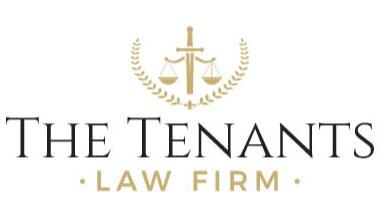Are Tenant Protections Available in West Hollywood?
Rent control limits the amount of rent that a landlord can charge tenants for their homes and provides greater housing stability for tenants. In California, landlords can set the initial rent at any amount, but once the tenancy begins, rental control ordinances limit rent increases. In cities that have passed rent control ordinances, they are typically combined with “just cause” protections to ensure that landlords do not unlawfully evict tenants to bring in new tenants.
The City of West Hollywood is one of approximately twenty cities in California that has passed rent control laws offering protections for tenants against unfair rent increases and unlawful evictions.
What Apartments Are Eligible for Rent Control in West Hollywood?
Two types of units are eligible for rent control protections in West Hollywood:
-
Properties with more than one dwelling unit that got a certificate of occupancy before 1979.
-
Properties with only one dwelling unit if the tenants moved in before 1996.
Although most properties fall under the two types of dwellings that qualify for West Hollywood rent control, some types of units are exempt from rent control laws, including:
-
New construction with a certificate of occupancy issued after July 1, 1979;
-
Condominiums and properties with only one unit on the entire parcel of land whose tenants moved in on or after January 1, 1996;
-
Non-profit housing;
-
Institutional facilities;
-
Government-owned housing; and
-
Some units in hotels or motels.
The amount of money that landlords can charge for properties in West Hollywood is controlled by the Rent Stabilization Division, which sets the Maximum Allowable Rent (MAR) for West Hollywood rent-stabilized units. In addition to setting the MAR on how much a landlord may charge for rent, the Division also has power over when rent can be raised.
For landlords who want to charge more than the MAR, they are required petition for an additional rent increase. A landlord may apply for conditional approval of a rent increase based on expenses for significant capital improvements that they plan on making within 12 months of the request.
Are Tenants Protected by the West Hollywood Just Cause Protections?
The city's just-cause eviction laws protect almost all residential units in West Hollywood, not just units that are protected by rent control. This means that the ordinance also applies to:
-
New construction units,
-
Condominiums and single-family properties that are permanently exempt from the Rent Stabilization Ordinance, and
-
Government subsidized housing (including Section 8).
When Can West Hollywood Tenants Be Evicted for Just Cause?
West Hollywood tenants can only be evicted for specific reasons (known as just cause evictions), such as:
-
Not paying rent,
-
Not providing the landlord with reasonable access to the rental unit,
-
Not making repairs or refusing to pay for repairs caused by the tenant,
-
Not having renters’ insurance,
-
Causing a nuisance,
-
Using the rental unit for illegal purposes,
-
Subleasing without the permission of the landlord,
-
Violating the terms of the tenancy, and
-
Failing to renew the lease if given proper notice to renew before the lease term expires and the contract has gone month-to-month.
The Ordinance also protects tenants who are at risk of eviction because they have more people living in the rental unit than than the maximum allowable number specified in their lease. According to the law, one additional person may live with a tenant if it is their spouse, domestic partner, child, grandchild, parent, grandparent, or sibling. However, the tenant must let the landlord know in writing that the additional person will be living in the unit.
However, relatives cannot continue as tenants when the person on the lease moves out unless they have lived in the unit with the tenant for more than one year and the original tenant has died or become incapacitated. In every other case, the relative has to move out when the person on the lease vacates. However, instead of looking for new tenants, landlords sometimes prefer to rent out the unit to the relatives. The landlord may treat the apartment as vacant and demand a credit check, new lease, increased rent, and new security deposit from the relatives.
Tenants are also allowed to have a full-time live-in medical aide as one additional occupant if their physician certifies that they need one for medicinal purposes. However, the live-in medical aide has to move out of the apartment when the tenant moves no matter what reasons the tenant vacates the unit.
